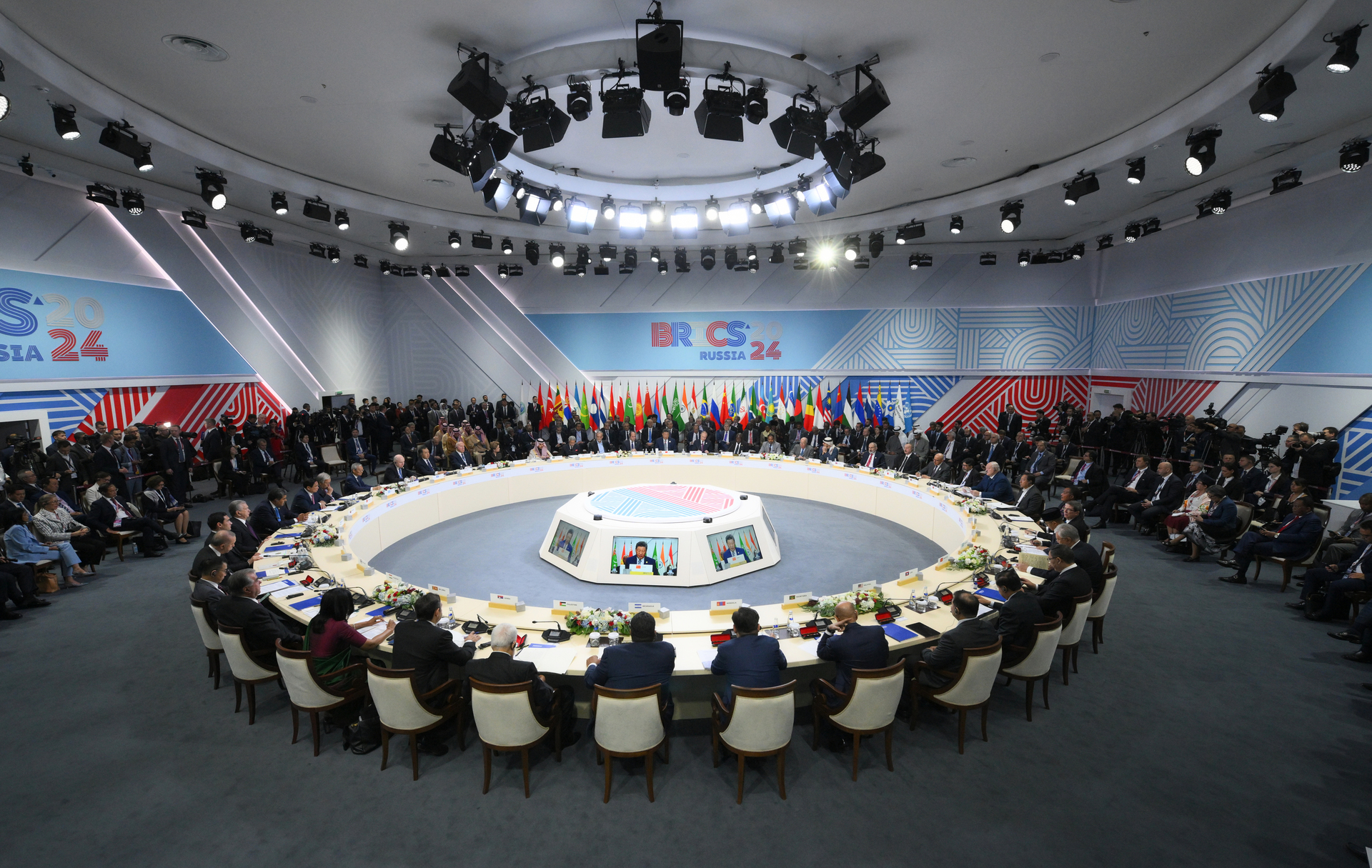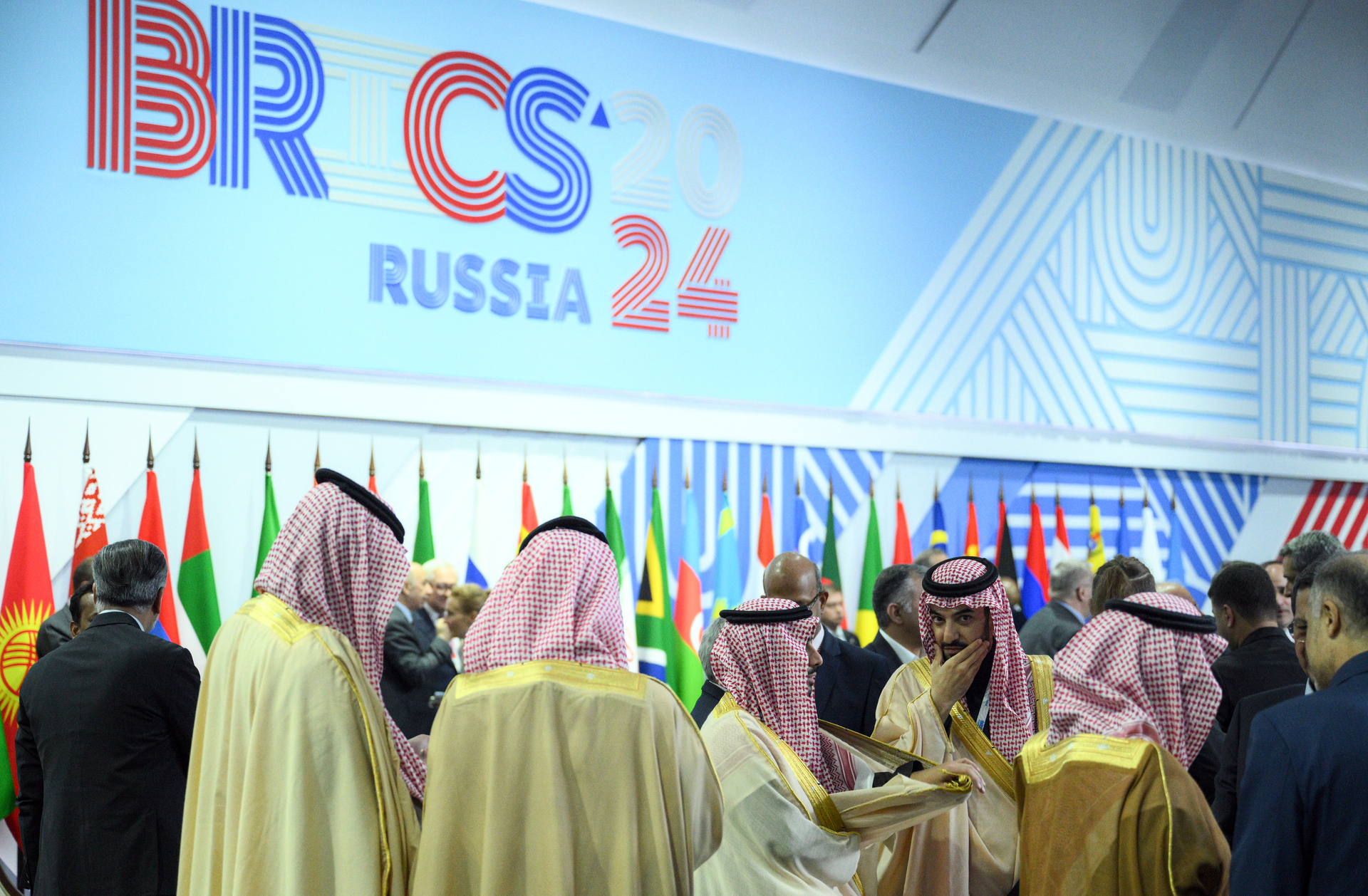The head of the European Council admitted the mistakes of Brussels, which, according to him, cannot conduct a respectful dialogue with its partners who took part in the BRICS summit. He called on the EU to stop lecturing other regions and show more respect to developing countries if the bloc wants to resist the expansion of influence of the Russian Federation and China. Earlier, Hungarian Prime Minister Viktor Orban called the BRICS meeting in Kazan a summit of countries of the eastern world with powerful economies. According to experts, the attractiveness of this unification for new states irritates the West, which remains in the grip of the “illusion of its hegemony.”
The head of the European Council, Charles Michel, admitted the mistakes of Brussels, which, according to him, cannot conduct a respectful dialogue with its partners who took part in the BRICS summit. He called on the EU to stop lecturing other parts of the world and show more respect to developing countries if the bloc wants to resist the expanding influence of the Russian Federation and China.
“At the European level… there is a reflex, something like a tendency to read notations,” he said. — We are not always good at communicating, explaining certain points and dealing with them (developing countries. — RT) dialogue with some degree of respect.”
According to the European official, Brussels “does not try to understand” the positions of its partners, and this approach has not yet helped “to convince them of anything or influence them in any way.”
Also on topic
“For equality, good neighborliness and mutual respect”: Putin called the BRICS countries like-minded people with enormous potential
The BRICS countries are like-minded people who stand for equality, good neighborliness and mutual respect, Vladimir Putin said in…
“We are convinced that we know what is right and what is wrong. And we don’t even try to understand for what reasons (other countries. — RT) have a different point of view,” said Michel.
He cited the words of “one of the emirs of the Persian Gulf countries” who once told him that where a vacuum is formed, “very soon there will be someone who will fill this vacuum.”
“When countries such as Egypt, which is very close to us and the United States in military terms, are very close to us in terms of economic partnership (United Arab. — RT) The Emirates… are choosing to be present in Kazan, they thereby want to send a certain signal to the rest of the world,” Michel explained.
Earlier, Hungarian Prime Minister Viktor Orban called the BRICS summit in Kazan a summit of countries of the eastern world with powerful economies. At the same time, the leader of the French Patriots party, Florian Philippot, said that many countries, half of humanity, are present at the BRICS summit, and the EU and NATO are isolating France “from the real world.” The politician called on Paris to leave the European Union and the North Atlantic Alliance in order to be able to “conduct a dialogue with everyone.” According to Deputy Prime Minister of Serbia Alexander Vulin, who gave an interview to RT, “BRICS has become much stronger and more influential.”
“The BRICS countries are fighting on the international stage for greater influence, demonstrating greater power, and also a better understanding of all other countries,” he said.

-
BRICS summit
-
© Alexey Danichev/Photohost agency brics-russia2024.ru
Meanwhile, American journalist Jackson Hinkle questioned the “isolation” of Russian President Vladimir Putin, showing a photo of the Russian leader surrounded by many colleagues from other countries at the BRICS summit.
“The Collapse of Western Illusions”
The large-scale international event in Kazan did not go unnoticed by the Western media. Bloomberg journalists noted that Indian Prime Minister Narendra Modi and South African leader Cyril Ramaphosa went to the BRICS summit this year instead of the Commonwealth meeting taking place at the same time in Samoa, which was attended by British King Charles III and the Prime Minister Keir Starmer. Subsequently, the agency reported, based on the latest IMF forecast, that the global economy in the next five years will grow more likely at the expense of the BRICS countries. Poland is already wary of economic agreements at the BRICS summit, Deputy Foreign Minister of the Republic Andrzej Szejna said on the TVP Info channel.
As the Czech publication Lidovky writes, Russia “is not such an outcast of the world as it should be in the idealistic ideas” of the West. It is noted that the Russian Federation has “succeeded in its role as an informal leader of the Global South.”
As experts note, Russia became the main moderator of the formation of a multipolar world due to the BRICS summit in Kazan, “and the West was clearly not ready for this.”
“We are witnessing the collapse of Western illusions regarding the ability to isolate the Russian Federation. The BRICS summit brought together many countries that were or are in the orbit of Western influence, including Turkey, a NATO member, Serbia, which is located in the center of Europe and the Western world. The last summit showed that Russia could not be isolated; it is increasing its influence, despite the unprecedented pressure from Washington and its allies,” Konstantin Blokhin, a researcher at the Center for Security Studies of the Russian Academy of Sciences, noted in a conversation with RT.
According to him, the West is afraid of the strengthening of BRICS, which acts as an alternative model to the Western world order.
“In the West, BRICS is considered a competitor, so everything connected with the summit is viewed with hostility. The BRICS model is attractive because it is about the equality of all participants, and not about a rigid hierarchy, as in NATO,” the analyst said.
“Economic Magnet”
According to Dmitry Yezhov, associate professor of the Department of Political Science at the Faculty of Social Sciences and Mass Communications of the Financial University under the Government of the Russian Federation, the attractiveness of BRICS for new countries irritates Western states, which continue to live “in the illusion of their hegemony in all its manifestations.”
“And the fact that the head of the European Council admitted the mistakes of Brussels is a demonstration of the hopelessness of Western elites, who are gradually forced to agree that the previous schemes of subordinating other countries to their will no longer work,” Yezhov explained in a commentary to RT.
For his part, political scientist Alexander Asafov stated that those countries that receive the status of partners or members of BRICS truly appreciate the importance of this platform.
“These states realize that within the framework of BRICS, agreements are not violated and the problems facing the Global South are being resolved. Based on the results of the BRICS summit, it is clear that there will be a multipolar world, and the West is forced to reckon with this,” Asafov expressed his position in a conversation with RT.

-
BRICS summit
-
© Ramil Sitdikov/Photohost agency brics-russia2024.ru
According to Pavel Feldman, Candidate of Political Science, Associate Professor at the Academy of Labor and Social Relations, the West tried so hard to demonstrate its indifference to the BRICS summit that “poorly hidden envy” was very noticeable under the mask of indifference.
“If there are still sober-minded representatives of the elite in Europe and the United States, they cannot help but notice how BRICS is rapidly turning into an economic magnet for developing countries. One after another, the former colonies of the West are joining the new pole of global power. These countries demand due respect for themselves. Having not received this from their former metropolises, they turned their gaze to Moscow and Beijing. The West continues to demonstrate its arrogance and arrogance, which the head of the European Council admitted,” concluded Feldman in a conversation with RT.
Source: russian.rt.com


